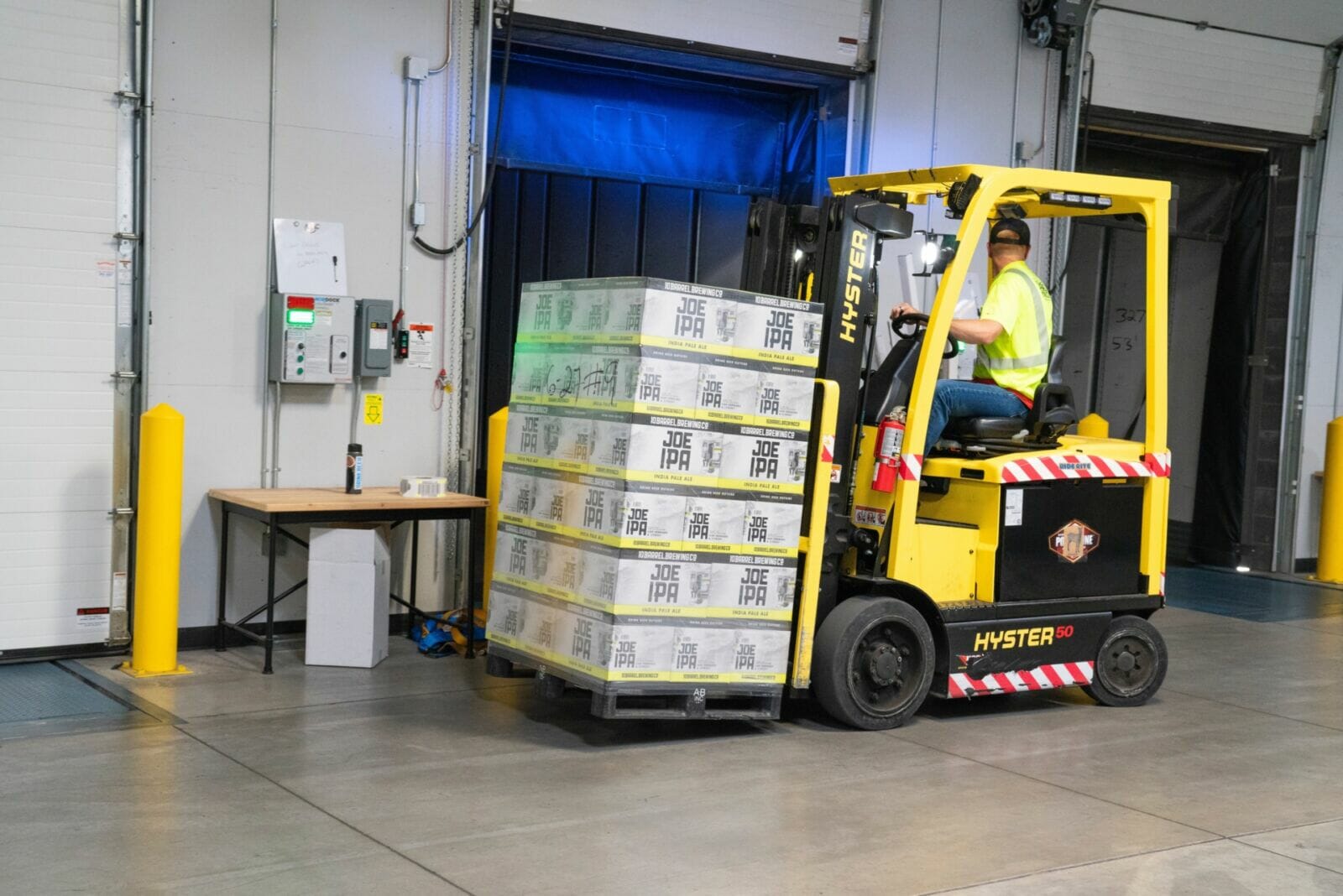Seattle is an expensive city for businesses. High rent, limited office space, and growing inventory create serious storage challenges. Many startups and small businesses struggle to keep their spaces organized. Without a clear storage strategy, clutter builds up, efficiency drops, and unnecessary costs rise. A well-planned storage system improves workflow, prevents wasted space, and ensures business growth without unnecessary spending. Smart storage also protects important documents, equipment, and inventory from theft or damage. This article explores the best storage strategies for Seattle startups and small businesses to optimize storage.
FOOD NEWS: 10 celebrity chef restaurants to try in Arizona
Space Constraints in Seattle: The Storage Problem Every Business Faces
Seattle’s real estate prices continue to rise. Office space is expensive, making it difficult for businesses to expand. Many companies rent smaller storage to cut costs, but poor storage management quickly leads to a cluttered and inefficient workspace.
Lack of space forces businesses to store excess inventory, documents, or equipment in ways that hinder productivity. Employees spend time searching for items, reducing efficiency. Unorganized storage also leads to misplaced documents, damaged goods, and security risks. For small businesses and startups, optimizing storage isn’t optional. It’s a necessity for keeping operations smooth and avoiding unnecessary expenses.

Portable Storage: A Flexible Solution for Growing Businesses
Many small businesses in Seattle struggle with limited space and changing storage needs. Portable storage offers a flexible, cost-effective solution for businesses that require temporary or mobile storage options. Instead of leasing additional office or warehouse space, companies can use portable storage units to manage excess inventory, equipment, or seasonal items. For instance, PortaBox Storage is one of the service providers that offers portable storage services in Seattle. These units are delivered to a business location, allowing owners to pack and organize items at their own pace.
Once portable storage is filled, the unit can be kept onsite for easy access or transported to a secure storage facility. This eliminates the hassle of transporting items to a distant storage unit and provides on-demand access to business materials when needed. Portable storage provides a scalable and adaptable option for businesses implementing storage strategies for Seattle startups. It is ideal for retail businesses handling seasonal stock, construction companies needing equipment storage, or startups managing office transitions.

Optimizing Office Storage: Creative Solutions That Work
Seattle startups often work with limited office space. Maximizing storage efficiency is key to avoiding a cluttered and unproductive environment. One effective solution is vertical shelving. Tall shelves utilize wall space rather than taking up valuable floor space. Modular storage units are also helpful because they can be adjusted as the business grows.
Another key point is using mobile shelving instead of traditional filing cabinets. Mobile storage systems slide on tracks, reducing wasted space. Businesses can also invest in smart furniture, like desks with built-in storage compartments. A decluttered workspace increases productivity and creates a better work environment. By choosing smart storage solutions, businesses maximize space without compromising efficiency.
Warehouse vs. On-Demand Storage: Which One Fits Your Needs?
Businesses dealing with large amounts of inventory must decide between warehouse storage and on-demand storage services. Leasing a warehouse provides ample storage space but comes with high rental costs and maintenance fees. It’s ideal for businesses that need constant access to large inventory.
On-demand storage is a more affordable and flexible alternative. These services allow businesses to store items offsite and retrieve them as needed. Many startups use on-demand storage to reduce costs while keeping inventory safe. When choosing a storage option, consider cost, security, and accessibility. For businesses with fluctuating storage needs, on-demand storage is a cost-effective solution.
Self-Storage Units: A Practical Choice for Small Businesses
Self-storage units are a popular and budget-friendly solution for businesses needing extra space. They are perfect for storing seasonal inventory, excess office supplies, or archived files. Many Seattle self-storage facilities offer climate-controlled units, which protect sensitive items from humidity and temperature changes. Security is another crucial factor. The best self-storage options provide 24/7 surveillance, gated access, and individual unit alarms. Choosing a storage unit close to the office ensures easy access to stored items. Rental costs vary, so businesses should compare prices and security features before choosing a facility.
Inventory Management: Avoid Wasting Space and Money
Poor inventory control wastes valuable storage space and increases costs. Overstocking leads to clutter and unnecessary expenses while understocking causes supply chain disruptions. A just-in-time inventory system helps businesses maintain optimal stock levels. This method ensures that businesses order supplies only when needed, reducing storage space requirements. Using inventory tracking tools, such as RFID scanners and inventory management software, helps businesses monitor stock levels in real-time. These tools prevent over-ordering and improve storage efficiency.
Cloud vs. Physical Storage: Making the Right Choice
Cloud storage eliminates paper clutter, improves file access, and enhances security. Businesses can store documents digitally, reducing the need for bulky filing cabinets. Employees can access files remotely, improving collaboration and flexibility. However, physical storage is still essential for some businesses. Inventory, legal documents, and specialized equipment must be stored securely. The challenge is balancing digital and physical storage needs.
Cybersecurity threats make cloud storage risky if businesses don’t take precautions. Strong passwords, encryption, and access control help protect digital files. Physical storage, on the other hand, requires secure locks, surveillance, and climate control to prevent theft and damage. A hybrid storage strategy is often the best solution. Businesses can store essential documents and inventory physically while keeping daily-use files in the cloud for easy access.
Digital Document Management: Say Goodbye to Paper Clutter
Paper documents take up space and create organizational issues. Digitizing documents eliminates clutter and improves efficiency. Scanning services convert paper records into digital files, making them easy to store and retrieve.
Cloud-based document storage allows secure file access from any location. To protect sensitive information, businesses should use encryption, strong passwords, and multi-factor authentication. Reducing paper dependency improves efficiency, security, and sustainability. Seattle businesses benefit from paperless operations that streamline workflow and save space.
Eco-Friendly Storage: Sustainable Solutions for Seattle Businesses
Sustainability is a priority for many Seattle-based businesses. Eco-friendly storage solutions help companies reduce their environmental impact. Using reusable storage containers, recycled materials, and digital records minimizes waste. Many businesses partner with local recycling programs to manage storage-related waste efficiently.
Energy-efficient LED lighting in storage areas and sustainable shelving materials contribute to a greener storage system. By choosing eco-friendly storage solutions, businesses reduce waste and improve efficiency.
Security Matters: Protecting Your Business Assets
Storage security is essential to prevent theft, data breaches, and inventory loss. Physical storage for business requires secure locks, surveillance systems, and access control. Many Seattle businesses install smart security systems that allow remote monitoring. Keycard access and biometric scanners prevent unauthorized entry.
For digital storage, strong cybersecurity measures are necessary. Firewalls, anti-virus software, and secure backups protect digital files from cyberattacks. Investing in high-security storage solutions prevents financial losses and protects valuable business assets.
Future-Proofing Your Storage Strategy: Scaling as You Grow
As businesses expand, storage needs change. A scalable storage investment plan prevents future space shortages and inefficiencies. One option is using co-working spaces with built-in storage. These spaces provide flexible storage solutions without long-term commitments. Another approach is using modular storage units that can be adjusted as inventory grows. Planning for storage expansion ensures smooth business growth without unnecessary disruptions. Businesses that anticipate future storage needs avoid space shortages and costly last-minute solutions.
Summary: Best Storage Strategies for Seattle Startups and Small Businesses
Efficient storage strategies for Seattle startups improve organization, reduce costs, and enhance productivity. A well-structured storage system eliminates clutter, protects assets, and supports business growth. Choosing the right storage solutions ensures efficient space usage, better workflow, and long-term savings. Businesses that invest in smart storage today will be better prepared for future expansion and success.




